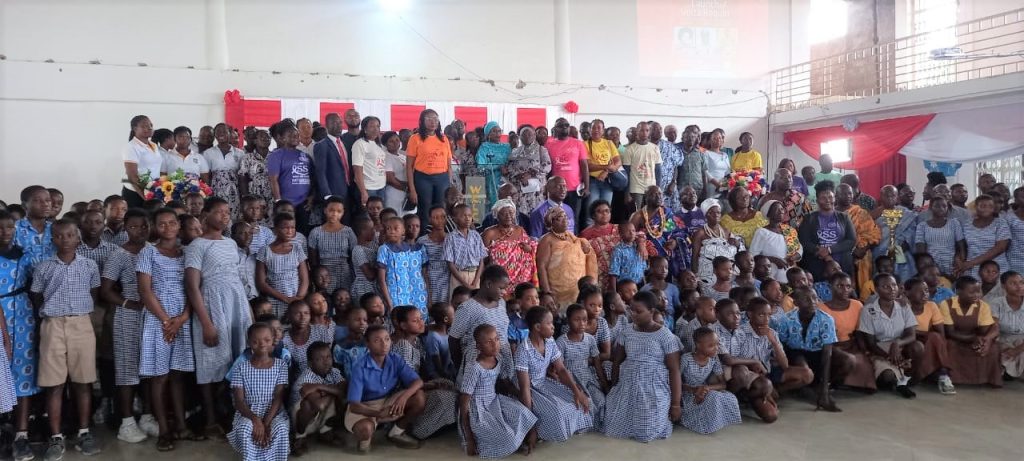By Edward Williams
Hohoe (V/R), Aug. 9, GNA – Professor Lydia Aziato, Vice Chancellor, University of Health, and Allied Sciences (UHAS), says the phenomenon where people with Sickle Cell Disease (SCD) died at early stages of their lives years ago was now better due to treatment regimens and medical interventions.
She noted that in Ghana, approximately two out of 100 new babies were born with SCD, impacting many families in the Volta region while about 30 out of 100 new babies were born with sickle cell trait.
Prof Aziato addressing a gathering during the launch of the 2023 Volta Region Sickle Cell Disease Awareness and Education Campaign at Hohoe, said SCD was passed down from parents to children, but some people could carry half of what could give the disease without experiencing the condition themselves.
She said there was the need for future parents to know their sickle cell statuses as early as possible and all new babies should be screened for the condition.
Prof Aziato noted that parents and teachers could help in identifying children with the Sickle Cell Disease and properly cared for those who had the disease to prevent them from always being at the health facilities.
She said health professionals must provide adequate support for people suffering from the disease, especially children, since the pain was real, adding that SCD also affected the economic statuses of parents whose child or children had the disease.
Prof Aziato said research and targeted intervention also needed to be carried out to reveal more about the disease as well as come out with interventions such as community engagements on SCD.
The launch was on the theme: “Formalising Newborn Screening and Hydroxyurea and Knowing your Status.”
Togbega Gabusu VII, Paramount Chief of Gbi Traditional Area, said in the bid to create awareness and overcome stigmatisation, stakeholders must use simple language to explain the disease, treatments and managing its impact to enable people understand and make right choices.

He said as traditional leaders, it was their duty to encourage persons living with Sickle Cell Disease to help themselves manage the condition by staying up to date with their medical care.
Togbega Gabusu said families of SCD patients should assist in disseminating information to the public from knowledge gained on comprehensive counselling.
He said the traditional rulers in the area were ready to support health authorities in efforts in the campaign and suggested that a Sickle Cell Disease Centre was established in the Volta Regional Hospital, Hohoe to raise awareness, screen, diagnose and for treatment.
Mr Geoffrey Kodzo Badasu, Kpando Municipal Chief Executive (MCE), in a speech read on behalf of Dr Archibald Yao Letsa, Volta Regional Minister, said the stigmatisation of SCD patients coupled with derogatory comments from others needed to be pointed out and condemned.
He said the government had announced the availability of Hydroxyurea for the treatment of people with Sickle Cell Disease.
Dr Letsa said the government remained resolute to its core mandate in healthcare delivery and would ensure that the needed support was given to people with the condition.
He appealed to families of SCD patients not to shy away from seeking support towards the management and treatment of the condition.
Dr Letsa asked healthcare providers to take maximum care of the patients with love.
He said the government had taken steps to advance the management of SCD in the region and focusing on strengthening healthcare infrastructure and making medications more accessible.
Dr Letsa said healthcare for individuals with SCD in the region had also been improved significantly.
GNA